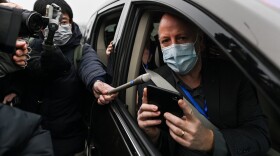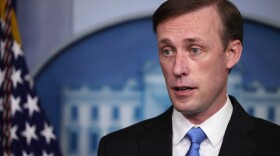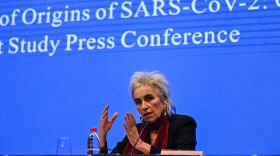-
The highly anticipated World Health Organization report on the origins of the coronavirus that sparked a global pandemic is due out Tuesday. NPR has obtained an early copy. According to the report, data suggests that the Huanan Seafood Wholesale Market in Wuhan was not the original source of the outbreak.
-
President Biden's national security adviser said Sunday that the administration has concerns over the data China has provided to the World Health Organization regarding the origins of the coronavirus pandemic.
-
The WHO team's main public conclusion so far is that it's "extremely unlikely" that the virus originated in a lab in Wuhan. The scientists think the virus most likely started in bats, then jumped to other animals, then to humans.
-
The medicine is one of the few to win regulatory approval as a treatment for the disease, but has fallen out of favor with the health authority.
-
The Chinese foreign ministry said it took this step "to uphold the concept of a shared community of health for all and to honor its commitment to turn COVID-19 vaccines into a global public good."
-
According to Johns Hopkins University, more than 20 million people worldwide have tested positive for the virus. The milestone comes almost exactly five months after the WHO declared it a pandemic.
-
The WHO cited a scientific study published last week suggesting that proposed COVID-19 drug hydroxychloroqine may do more harm than good in halting its study to review data.
-
The analysis from Columbia University focused on the period from March 15 to May 3, when states and counties implemented "measures enforcing social distancing and restricting individual contact."
-
"Today the world showed extraordinary unity for the common good," European Commission President Ursula von der Leyen said. The U.S. was conspicuously absent from the event.
-
How did the president respond to key moments during the pandemic? And how did representatives of the World Health Organization respond during the same period?
Play Live Radio
Next Up:
0:00
0:00
Available On Air Stations










